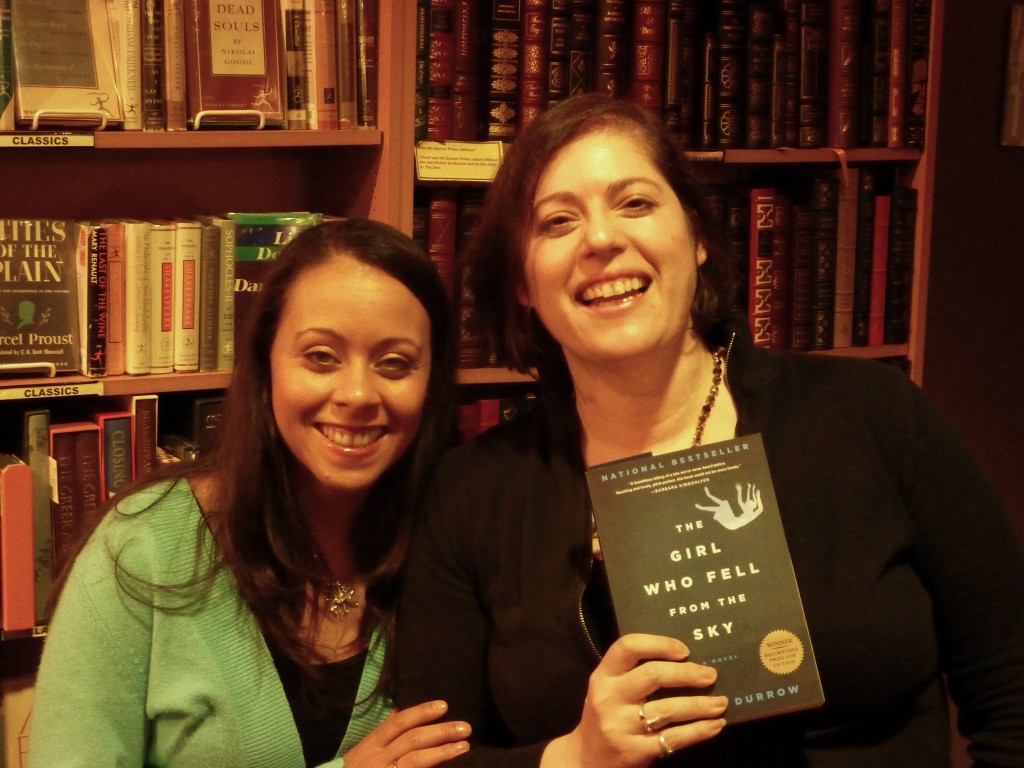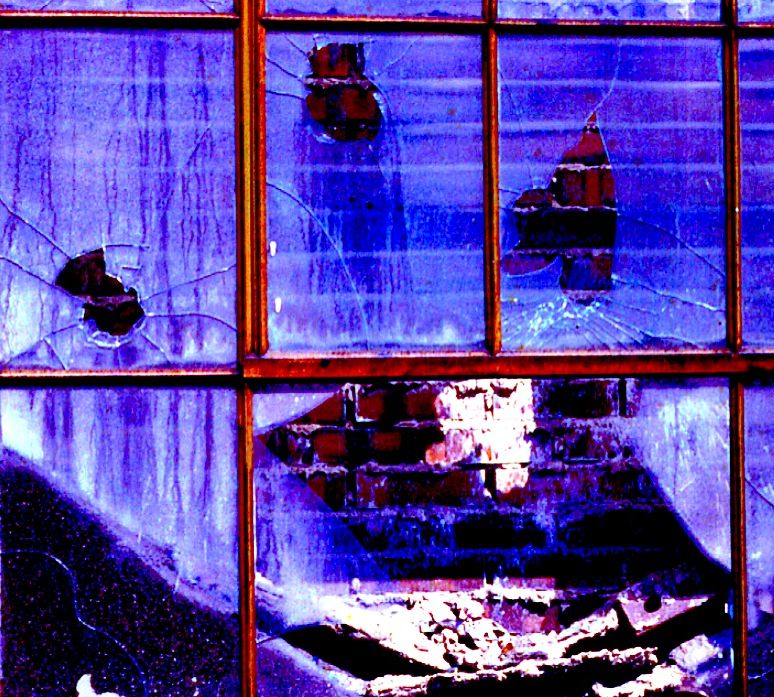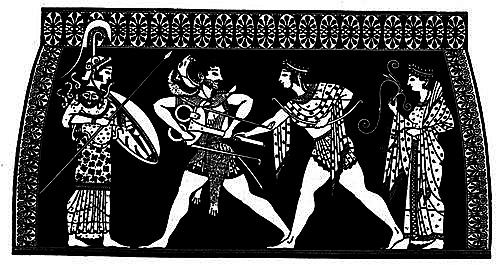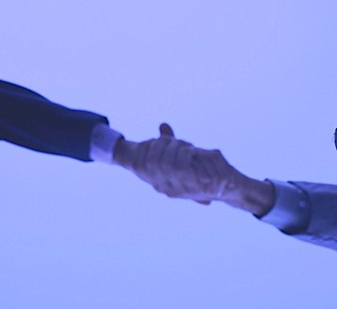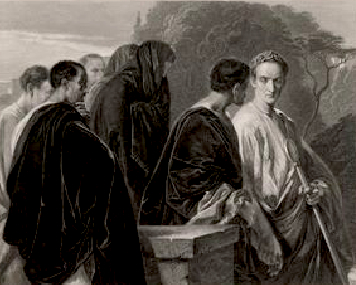
No, your bugged-out eyes are not deceiving you: I did in fact manage to work two — count ‘em, two — puns on the ubiquitous landing an agent trope into that capacious title, thank you very much. I can keep coming up with new names for this series until the proverbial cows come home, people, but until I hear some suggestions from my audience, the puns are just going to keep getting worse.
Don’t say I didn’t warn you. (And yes, I did take the disturbing photo of the floating fish myself.)
All week, we have been talking about how to generate a nice, substantial, and — dare I say it? Apparently, I do — appropriate list of agents to query. Because it’s a waste of your valuable time to write (not to mention Millicent the agency screener’s to read) letters to agents who do not regularly represent books in your category, the unfortunately common would-be querier’s strategy of simply opening one of the standard agency guides, casting a quick glance that the index, and sending essentially the same letter to every agent who seems remotely feasible is not in your best interest. While it can take some serious effort to come up with an intelligently targeted list, containing only agents with a proven track record of recent sales of books like yours (ideally, first books like yours), in the long run, selective querying is far more likely to yield requests to see manuscript pages than a scattershot approach.
And why is that, campers? Pull out your hymnals and sing out: agents specialize. So does a savvy querier.
To that end, we concentrated last time upon the sometimes difficult task of tracking down who represents whom, so that you may query agents who represent books similar to yours. I recognize, though, that to the more impatient among you — an aspiring writer impatient to see his work in print? Alert the media! — the level of background research I suggested yesterday might well have seemed a bit arduous. So today, I thought I would make a slight detour to a cut-to-the-chase agent-finding strategy long favored by the bold: walking up to a published writer (or a pre-published but agented one) and simply blurting out, “Excuse me, writer-whom-I-envy, but do you mind if I ask who represents you?”
You’d be surprised how often the answer is something along the lines of, “Why, no, not at all. My agent is Dealmaker McWheelerdealerson at Rainmaker Literary.” Writers tend to be nice people; they’re often very happy to give a spot of advice and encouragement to someone new to the game.
Given how very useful responses to this question can be for aspiring writers, it’s kind of astonishing how infrequently one hears it at author readings. Perhaps aspiring writers are shy; perhaps, too, they don’t go to as many book readings — especially by first-time authors — as they should.
Oh, you know a better place to run into a kind soul who demonstrably already has an agent? Or one more eager to talk to a potential reader? At an under-attended reading, a respectful aspiring writer might end up chatting with that new author for hours.
Yet even when aspiring writers are clever, resourceful, and community-supportive enough to find out when authors of books in their chosen categories are going to be signing and committed enough to show up, they are often afraid to come right out and ask the crucial question. They don’t want to bore other reading attendees. If you should happen to be laboring under this belief, allow this veteran of thousands of author readings to set your mind at rest: these days, “Who represents you, and how did you land your agent?” almost always elicits a response that’s interesting enough to entertain the non-writers in the audience, too.
Especially if you ask anyone who has landed an agent within the last seven or eight years, when the trolling has been quite a bit more difficult than in days of yore. I’ve seldom met a new author who isn’t positively relieved to launch into a diatribe about the 147 agents she approached before she heard those happy words every aspiring writer longs to hear: why, yes, I’d be delighted to represent your writing.
While you have your hymnals out, let’s sing another ditty: contrary to popular belief, good manuscripts do not always get snapped up right away. In the current ultra-competitive literary market, a savvy writer should expect to send out many, many queries before finding the right agent for her work.
So trot on out there and start asking some questions of the recently-published. If you live in or near a big city with some good bookstores, chances are very good that there are readings going on somewhere in town practically every day of the week. Again, don’t be afraid to ask some questions at your local bookstore or library: trust me, if you walk into the best bookstore in town, saunter up to the register or information desk, and ask for a calendar of readings, the staff will be OVERJOYED to direct you to one. Or put you on a mailing list.
Here in Seattle, we’re pretty lucky: not only do we have several very good independent bookstores that regularly host readings and signings, but we also have The Stranger, a free newspaper that routinely lists all of the author readings for any given week, along with brief summaries of their books. Heck, it’s even the rare newspaper that still — gasp! — reviews books. (Possibly because the editorial director, Dan Savage, won the PEN West award for a memoir a few years back.)
When you’re agent-hunting, it’s usually more worth you while to go to readings by first-time authors than people whose names have graced the bestseller lists for quite some time. Often, new authors are downright grateful to anyone who shows up, and doubly so to anyone who asks an interesting question. And if they are not grateful enough to their agents just after their first books come out to want to talk about them, they probably never will be.
As a fringe benefit, new authors will often blandish their local writer friends — publishers’ publicity departments generally ask authors for lists of cities where they have lots of friends, and set up readings accordingly — into attending their readings, just so someone shows up. Sometimes, these helpful friends are willing to tell you who their agents are, and what they represent.
Seriously, it’s always worth inquiring, especially if the reading author is new to the publishing biz. To be blunt about it, you’re far more likely to garner an actual referral from a first- or second-time author than a better-established one, especially if you listen politely, laugh at the jokes in the reading, and hang out to talk afterward.
Why do the established tend to be more stand-offish about it, you ask? Contrary to popular opinion, it’s not usually because they’re snooty. Just experienced.
Let’s face it, the etiquette in this situation can be a little murky from both sides of the podium — after all, authors at public readings need to regard anyone who approaches them at a reading as a potential book buyer, and thus may come across as friendlier than they intend. And because the road to recognition is so very long and winding, many aspiring writers seek to speed things up a trifle by enlisting the help of the already established on their behalf by not only asking for information about who represents them, but by requesting (or, in some unfortunate cases, demanding) to be allowed to open their query letters with the eye-catching statement, Your client, Madeitaftertwentyyears Paidherdues, recommended that I contact you about my book…
Half of you just started salivating, didn’t you? Before you get too slobbery, I hasten to add: experienced authors tend to make this sort of recommendation fairly rarely.
To illustrate just why an author might become rather jaded to this species of request over time, allow me to introduce you to who a few hypothetical souls who gamely walked up to published authors and asked for their help — badly. Like everything else, there’s a right way to do it and a wrong way.
The right way to ask an author for information about his agent, should you care to know it, involves treating him with precisely the same respect you would enjoy were you in his shoes. Approach politely, say something nice about his writing before you ask anything, and don’t be pushy. When you do come out with the big question, phrase it as the greatest of favors — which, incidentally, a referral to one’s agent undoubtedly is.
No need to be craven — anything beginning, “I’m sure you get this question all the time, Your Wonderfulness, but would you mind terribly if I asked…” is probably a bit over the top — but do indicate that you are aware that the author might not want to grant this request to a total stranger. Then, too, asking for advice usually works better than a direct request: something along the lines of, “My novel is rather similar to yours, and I was thinking of querying your agent. May I ask for some suggestions about the best way to approach her?” is often more successful than, “Hey, can I tell your agent that you sent me?”
That’s the right way. Journey with me now to the land of hypotheticals, to explore the wrong way. Or, more accurately, several wrong ways.
Author-approaching scenario 1: Isabelle notices in her local paper that Ignatz, a writer whose work is similar to hers and is aimed at the same target market, will be giving a reading at a local bookstore. She makes a point of attending the reading, installs herself in the front row, and bides her time, awaiting her moment. During question time, she stands up and asks point-blank who represents him, couching the question within a request for permission to use him as a query reference.
Ignatz laughs uncomfortably, tells an agent-related anecdote, and when she presses for a name, tells her to see him after his talk is over. Any other questions?
Isabelle waits patiently until all those who have bought books have presented them to Ignatz for signing, then repeats her question. “I haven’t read your book,” she tells him, “but from the reviews, our writing has a lot in common.”
Ignatz, professional to the toes of his well-polished boots, casts only a fleeting glance at her empty hands before replying. “I’m sorry,” he says, “my agent has asked me not to refer any new writers to him.”
What happened here, and how did Isabelle harm her own chances of success? For extra credit, what about Ignatz’s response marks it as a brush-off, rather than a simple statement of his agent’s feelings on the subject?
Isabelle committed two cardinal sins of author approach. First, she did not evince ANY interest in Ignatz’s work before asking him for a favor — and a fairly hefty favor, at that. She did not even bother to buy his book, which is, after all, how Ignatz pays his rent. But since he is quite aware, as any successful author must be, that being rude to potential readers may mean lost business down the line, he can hardly tell her so directly.
So he did the next best thing: he lied about his agent’s openness to new clients.
How do I know he lied? Experience, my dears, experience: had his agent actually not been accepting new clients, his easiest way out of this awkward situation would have been simply to say so. He did not, however: what he said was that his agent asked him — personally — not to recommend any new writers.
A subtle difference, but a crucial one, as far as tactfully refusing requests like Isabelle’s is concerned. Most agents rather like it when their clients recommend new writers: it saves the agent trouble to use the client as a screener. So if an agented writer says, “Oh, my agent doesn’t like me to recommend,” he generally really means, “I don’t like being placed in this position, and I wish you would go away. Please buy my book anyway.”
How has Isabelle placed Ignatz in a tough position? Because she has committed another approach faux pas: she asked for a reference from someone who has never read her work — and indeed, didn’t know she existed prior to the day of the request.
From Ignatz’s point of view, this is a no-win situation. He has absolutely no idea if Isabelle can write –- and to ask to see her work would be to donate quite a bit of his time gratis to someone who has just been quite rude to him. Yet if he says yes without reading her work, and Isabelle turns out to be a terrible writer (or still worse, a terrible pest), his agent is going to be annoyed with him for sending her along. And if he just says, “No, I don’t read the work of every yahoo who accosts me at a reading,” he will alienate a potential book buyer.
So lying about his agent’s availability is Ignatz’s least self-destructive way out. Who can blame him for taking it?
Because I’m a great believer in the try, try again approach to agent-seeking, let’s next assume that Isabelle has learned something from this encounter. Manuscript in hand, she decides to try her luck at another author reading.
Author-approaching scenario 2: this time, Isabelle makes a smarter choice, going to hear an author with whose work she has already read. Wisely, she digs up her dog-eared copy of Juanita’s first novel and brings it along to be signed, to demonstrate her ongoing willingness to support Juanita’s career. She also brings along a copy of her own manuscript.
After the reading, Isabelle once again stands in line to have her book signed. While Juanita is graciously chatting with her about the inscription, Isabelle slaps her 500-page manuscript onto the signing table. “Would you read this?” she asks. “And then recommend me to your agent?”
Juanita casts a panicked glance around the room, seeking an escape route. “I’m afraid I don’t have time to read anything new right now,” she says, shrinking away from the pile of papers.
Oh, you may laugh, but #2 happens even more that the first scenario –- and with even greater frequency at writers’ conferences than book signings. Just as some aspiring writers have a hard time remembering that agents have ongoing projects, lives, other clients, etc. whose interests may preclude dropping everything to pay attention to the total stranger who has just pitched or queried them, the pushy often forget (or never knew in the first place) that many, if not most, working authors who show up at conferences are there to promote their books, teach writing classes, and give lectures in order to supplement their incomes, not merely to win karma points by helping out the aspiring.
That’s an important distinction in this instance — basically, Isabelle has just asked a writing teacher she has never met before to give a private critique of her manuscript for free. Just as querying and pitching necessarily cuts into your precious writing time, so do requests of this nature cut into established writers’ writing time. And for very little benefit.
Oh, you hadn’t thought of it that way? Okay, tell me: other than Isabelle’s admiration and gratitude, what would Juanita get out of saying yes? A single book sale, at most?
This not to say that some established writers don’t like to offer this kind of help; surprisingly many will routinely read at least a few pages of politely-offered aspiring writers’ work. But even the most generous person tends to be nonplused when completely strangers demand immense favors. Establishing some sort of a relationship first –- even if that relationship consists of nothing more than the five-minute conversation about the author’s work that will prompt her to ask you, “So, what do you write?” — is considered a courteous first step.
This particular set of problems is not discussed much on the conference circuit – or, to be precise, they are not discussed much in front of contest attendees; they are discussed by agents, editors, and authors backstage at conferences all the time, I assure you, and in outraged tones.
Why? Because, alas, for every hundred perfectly polite aspiring writers, there are a handful of overeager souls who routinely overstep the bounds of common courtesy –- and, as I can tell you from direct personal experience, it’s not always easy being the first personal contact a writer has with the industry: one tends to be treated less as a person than as a door or a ladder.
No one, however famous or powerful, likes being climbed. Case in point:
Author-approaching scenario 3: at a large writers’ conference, Karl meets Krishnan, a writer who has recently acquired an agent. The two men genuinely have a great deal in common: they live in the same greater metropolitan area, write for the same target market, and share a love of the plays of Edward Albee. (Don’t ask me why; they just do. Suspend your disbelief a little, for goodness’ sake.) After hanging out together in the bar that is never more than 100 yards from any writers’ conference venue, it seems perfectly natural for Karl to e-mail Krishnan and ask him to have coffee the following week.
Within minutes of Krishnan’s arrival at the coffee shop, however, he is plunged into embarrassed confusion: Karl pulls a hefty manuscript box out of his backpack. “Here,” Karl says. “I want to know what you think before I send it to the agents who requested it at the conference. And after you read it, you can send it on to your agent.”
Krishnan just sits there, open-mouthed. As soon as his cell phone rings, he feigns a forgotten appointment and flees.
Okay, what did Karl do to make Krishnan feel like he was being used? Partially, he echoed Isabelle’s mistake: Karl just assumed that by being friendly at the conference, Krishnan was volunteering to help him land an agent. Because he was so focused on his own career, he didn’t pause to consider Krishnan, either as a writer or as a person.
In Karl’s mind, the only reason Krishnan could conceivably have agreed to have coffee with him was to discuss how he could help Karl land an agent. However, there are a LOT of reasons that industry professionals are nice to aspiring writers at conferences. A small sampling, in descending order of probability:
(1) Krishnan might have just been polite because his mother brought him up to be nice to strangers.
(2) Krishnan might have regarded Karl as a potential buyer of his books, and as such, did not want to alienate a future fan.
(3) Krishnan might have been teaching a class at the conference, or hoping to do so in future, and wanted to make a good impression.
(4) Krishnan is lonely — writing is an isolating craft, right? — and is looking for other writers with whom to have coffee every now and again between chapters. (Was it too much to expect a nice conversation about Zoo Story?)
(5) Krishnan is looking for local writers with whom to form a critique group and wanted to test-drive Karl as a conversational partner.
(6) Karl is a heck of a lot more attractive than he thinks he is.
(7) Krishnan has long been desperate to get some feedback on Chapter 3 of his doctoral dissertation, Edward Albee, A Study of Every Line of Every Play in Exhaustive Detail. His backpack contains a draft for Karl’s perusal.
(8) Krishnan is actually a serial killer who lurks at writers’ conferences, trolling for victims because he likes to bury body parts and manuscript pages together, or,
(9) Krishnan’s agent might have asked him to be on the lookout for new writers at the conference (rare, but it does happen occasionally).
Of these possibilities, only #5 would dictate ANY willingness on Krishnan’s part to read Karl’s work — and only if feedback would be exchanged, not a one-way arrangement. Even if #9 were true, it would be highly unusual for Krishnan to volunteer himself as a first reader; it’s a time-consuming task, and potentially awkward if Karl’s work does not turn out to be something that might conceivably interest Krishnan’s agent. Again, what would be in it for the agented writer?
Regardless, if either #5 or #9 had actually been Krishnan’s intent, it would have been polite for Karl to wait to be ASKED to share his work. As any Millicent would be only too happy to tell you, even a cursory scan of a manuscript can take quite a bit of time.
But what of Karl’s request that Krishnan pass the manuscript on to his agent? This, too, placed Krishnan in an awkward position. Even with a super-open agent, an agented author cannot recommend others indiscriminately. Think about it: if Krishnan recommends Karl, and Karl turns out to be a bad writer, a constant nuisance, or just plain nuts, that recommendation will seriously compromise his ability to recommend writers in future.
That’s right: writers like Karl, while usually well-meaning in and of themselves, collectively make it harder for everyone else to garner recommendations to agents.
There’s another reason Krishnan would be inclined to run from such an approach: resentment. Not of Karl’s rather inconsiderate assumptions that he would automatically be willing to help someone he’s just met, but of Karl’s attempt to cut into a line in which Krishnan probably stood for quite some time.
See earlier comment about just how long it can take even the most gifted writers to land an agent these days. Karl was unwise to assume that Krishnan would be eager to speed up the agent-finding process for anyone else. For all Karl knows, Krishnan invested a decade in finding absolutely the right agent for his work — and, unhappily, human nature does not always wish to shorten the road for those who come after.
Just ask anyone who has been through a medical residency. Or a Ph.D. program.
Err on the side of caution: presume that the more recently a writer landed an agent, the more difficult and time-consuming the agent-finding process was. And if he is in the throes of submission to editors, assume that he may be stressed out about that, too.
If an agented writer’s fretting about submissions seems a little strange to you, I can only conclude that your experience listening to those whose first or second books are currently being marketed by their agents is not vast — and thus that you have probably not been hanging out after very many new authors’ readings lately. Almost universally, a writer’s life gets harder, not easier, in the initial months after of being signed: practically any agent on earth will ask for manuscript revisions of even a manuscript she loves, in order to make it more marketable, and no one, but no one, on the writer’s end of the game is ever happy about his agent’s turn-around time.
Don’t see how that relates to Karl’s request? Well, think about it: even if Krishnan’s agent is a saint and habitually works at a speed that would make John Henry gasp, every second she spends reading new work is one second less devoted to reading Krishnan’s latest revision — or marketing it. Some authors are a mite touchy about that, so tread carefully.
Note, please, that all of the above applies even if Krishnan actually has time to read the manuscript in question. Which, as the vast majority of agented-but-not-published writers hold full-time jobs and have to struggle to carve out writing time — as, actually, do many of the published writers I know; not a lot of people make a living solely from writing books — is most emphatically not a foregone conclusion.
The best rule of thumb: establish an honest friendship before you ask for big favors. Until you know an author well, keep your requests non-intrusive.
And be polite, always. Krishnan probably would not have minded at all if Karl had simply asked for his agent’s name after half an hour of pleasant chat. Heck, Krishnan might have offered the information unsolicited in that time — or even permission to use his name in the first line of a query letter.
I can picture it now: since you so ably represent Krishnan Jones, I hope you will be interested in my novel… Too bad Karl blew such an opportunity by being hasty, eh?
Another good reason to get to know your intended helper a bit first: it may well have turned out that Karl had a skill – computer repair, eagle-eyed proofreading, compassionate dog-walking — that Krishnan would be pleased to receive in exchange for feedback on Karl’s book. Krishnan might even have asked Karl to join his critique group, where such feedback would have been routine.
But Karl will never know, because he jumped the gun, assuming that because Krishnan had an agent, the normal rules of favor-asking did not apply to him.
The same rule applies, by the way, to any acquaintance whose professional acumen you would like to tap unofficially. If I want to get medical information from my doctor about a condition that is plaguing a character in my novel, I expect to pay for her time. (And have actually done so, by the way.) Nor, outside of a formal conference context, would I expect a professional editor to read my work, an agent to give me feedback on my pitch, or an editor to explain the current behind-the-scenes at Random House to me unless we either already had established a friendship or I was paying for her time, either monetarily or by exchange.
That does not mean, of course, that you should be shy about asking an agented writer who represents him. Just tread lightly, and be very aware that you are asking a favor, and a big one, when you ask an author to help you reach his agent. Not only are you asking the author to invest time and energy in helping you — you are also implicitly imploring him or her to put credibility on the line.
And that, my friends, is something that most authors — and most human beings — do not do very often for relative strangers.
Next time, I shall examine a few more pitfalls that commonly open up under the unwary feet of aspiring writers seeking assistance in generating their query lists. Not exactly cheerful, I know, but I would far, far rather that you hear some of these unpleasant truths from me than for even a single member of the Author! Author! community accidentally tumbled into one of them. Keep up the good work!
Rachel, the daughter of a Danish mother and a black G.I., becomes the sole survivor of a family tragedy after a fateful morning on their Chicago rooftop.
